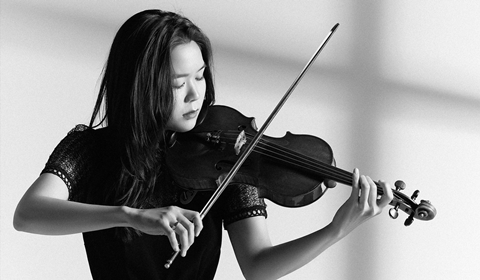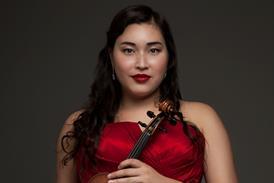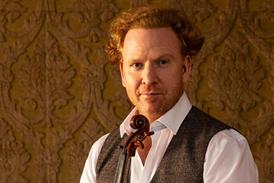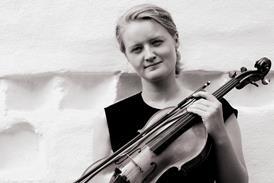Peter Quantrill hears the premiere of Raymond Yiu’s Violin Concerto at London’s Barbican Hall on 20 March 2024

Seven years in the making, Raymond Yiu’s Violin Concerto is a big piece in every sense. Themes of exile, loss and nostalgia place it in a lineage stretching back to Korngold and Bartók. For Yiu, born in Hong Kong, long resident in London, those themes take on new life and relevance through the turmoil of 20th-century Chinese history, and the life of the Chinese violinist Ma Sicong, as the soloist Esther Yoo outlined in a pre-premiere interview with The Strad (bit.ly/3TXJJg2).
Like the marital proverb, there is something old, something new, something borrowed and indeed something blue about the concerto’s gradual awakening, giving Yoo plenty to dig her bow into, though the funky orchestration of the following scherzo periodically drowned her with its echoes of Cantonese pop. Where she came into her own was the solo third movement, a decorated transcription of an anonymous solo for erhu which draws deep on violinistic reserves of romantic expression, presenting an alluring showcase for any top-class violinist.
Watch: Like father, like daughter: Artist Confidential with Esther Yoo and her dad
Read: Ma Sicong inspires a new violin concerto for Esther Yoo
Where Yiu decisively breaks from tradition is the finale’s journey – almost a concerto in itself – from Sibelian questing to a state of dissolved transcendence, via a fluid, often conflicting dialogue between both violin and orchestra and across European and Asian harmony. The BBCSO demonstrated their long expertise in taking on complex new scores, but Yiu’s concerto is – perhaps unfashionably – soloist-driven. Yoo seized its lyrical opportunities with assurance, and if more extrovert accounts of the solo part were conceivable, second and third outings for the piece would be more than welcome.
PETER QUANTRILL


































No comments yet